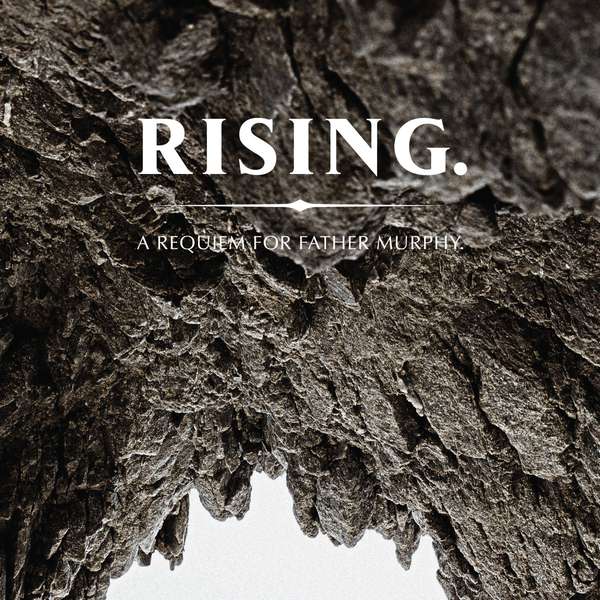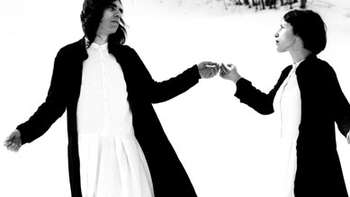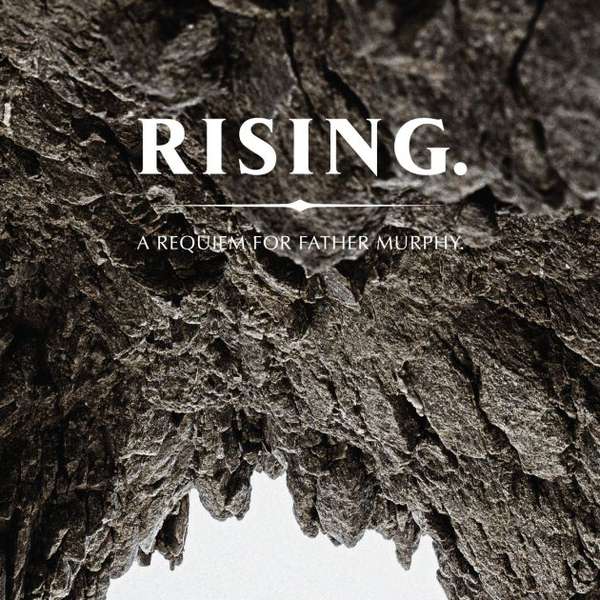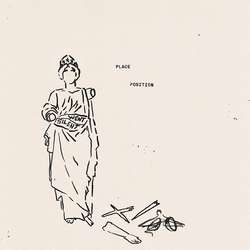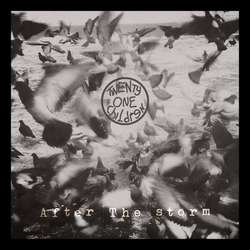The mysterious figure of Father Murphy appeared as a spectre in the early '00s. Formed by, as the band claims, its children Freddie Murphy and Chiara Lee, the Italy based band has created a mystique around their musical investigations. Through the years, the figure of Father Murphy has remained elusive. Through the different records and EPs various facades have been unveiled, with the band displaying a diverse array of influences. Garage and lo-fi beginnings have evolved into psychedelic rock haze. New wave progressions and post-punk sensibilities, along with the no-wave avantgarde spirit have been explored. Even darkwave and techno have found their place in the motifs of Father Murphy.
After all this process of evolution, the band seems to have reached its end point signalling the demise of this mysterious figure. Rising sees the finale of the story for Father Murphy, and all the themes and ideas of the duo are called upon now that the end is reached. As an ouroboros however, Father Murphy sees the band revisiting their musical beginnings to close this story. The Catholic heritage that is apparent throughout their releases, with its themes of salvation, redemption and sacrifice, has also influenced Murphy and Lee on a much more basic level. Both members reminisce their youth, when they were part of local church choirs, and that in itself becomes a central theme for the album.
The ceremonial-like pace and progression, which are the dominant forces of Rising, display this kinship to choir settings. Here, Father Murphy achieves grandeur through minimalism, something that can be felt from the opening moments of “Introit,” where the band simply arranges repetitive timpani through the empty space. “Kyrie Eleison” further displays the influence of choir in this work, featuring a desolate scenery where only the voices of the duo are present. This ritualistic essence opens up the work to a more ethereal interpretation, which is highlighted further in tracks such as “Communion” that feature a feeling of peace and serenity.
The other aspect of this work however is the requiem. This is a work that signifies an end, the metaphorical death of the character. Timpani and trombones are brilliantly implement to achieve that effect, and the organ can have a tremendous effect in shattering the very fabric of reality. The notes in “Gradual” sweep the soundscapes and create a truly mournful and grand feeling, with the voices of the duo propelling this feeling of dread forward. It is one of the more impactful moments of the album, but Father Murphy also balance it out by including further moments of ethereal bliss, in the majestic “Tract” and “Agnus Dei.”
It is this sense of continuity that elevates the record. By implementing the core ideas of minimalism and arriving with a stripped down perspective, Rising appears to stretch further and to entail more information than the previous Father Murphy albums. The influence of musique concrete for example plays a big part in crafting the record's background. The further manipulation of these field recordings provide the necessary textural variations, in moments like “Offertory” where the flames are enhanced by a metallic injection. On the other hand, the ambient passages are augmented through the subtle implementation of drones, as is the case with the final part of “Kyrie Eleison.” More sinister is the viewpoint in “Pie Jesu” which features a mixture of musique concrete and sound design that make the whole endeavour appear demented.
Through all its machinations, Rising becomes a stellar chapter to finish an intriguing book. Father Murphy's transformations in the past have been extravagant, but here the band has focused even more on introspection. By investigating the story of Father Murphy, both the figure and the band's past, the duo has produced a work that redefines what they represent. It is a very fitting end to a pioneering figure of experimental music.
